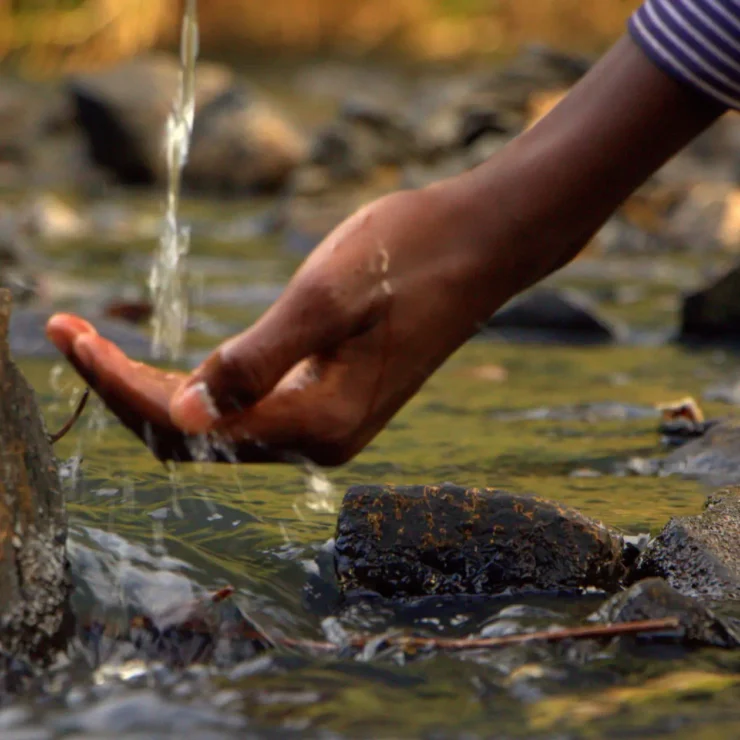Water Scarcity and Conflict
Water is a vital resource, essential for human survival, agricultural productivity, and economic development. Yet, it is becoming increasingly scarce. Water as a conflict resource has significant global ramifications. Tensions between countries, communities, and sectors competing for this life-sustaining resource increase as freshwater sources reduce. With upstream nations controlling the flow and downstream nations vulnerable because they rely on these sources, international rivers and lakes become potential hotspots for conflict. The need to secure water supplies is already influencing geopolitical strategies and alliances, increasing the possibility of water wars.

The Struggle for Clean Water: Health and Sanitation at Risk
Access to clean and safe water is a fundamental human right, yet it remains an elusive privilege for many, primarily due to factors such as environmental degradation, poor infrastructure, and socio-economic disparities.
Unclean water is often contaminated with pathogens, chemicals, and waste products, which lead to several illnesses. Waterborne diseases, such as cholera, dysentery, typhoid, and hepatitis, can spread at an alarming rate in areas where populations rely on untreated water sources for drinking, cooking, and bathing. These diseases are particularly rampant in regions where water sources have been polluted with human and industrial waste because of inadequate sanitation facilities.
The risks associated with the lack of clean water are not limited to immediate health hazards; they also have far-reaching implications for the well-being of communities. Children are especially vulnerable to the detrimental effects of water-related diseases; these illnesses can impede physical and cognitive development, leading to chronic health issues and impacting educational opportunities.
Efforts to address the clean water crisis must include the implementation of sustainable water and waste management systems to ensure the protection and efficient use of water resources. Equally important are education and awareness campaigns that promote the significance of sanitation, hygiene practices, and the protection of water catchments. Investment in water purification technologies and infrastructure can provide communities with the means to treat and utilize water in a manner that safeguards public health.
Political Maneuvering in the Realm of Water Scarcity
Hydropolitics, the political economy surrounding the access and control of water resources, shapes international relations and local governance, affecting communities at both the macro and micro levels. This water-related power struggle could either encourage cooperation or provoke conflict, with implications for environmental protection, development, and stability in the area.
Political agendas can leverage control over water resources as a strategic tool, with states or regions using water to exert pressure or influence on others. Upstream nations may decide how much water flows to their neighboring countries, affecting agricultural output, energy production, and basic survival needs.
Furthermore, some areas, particularly those with less political influence, may experience systematic neglect when political interests dictate water management. This may result in an uneven distribution of water resources, with some areas experiencing water scarcity more due to unequal water rights allocation and prioritization than from a lack of resources. Such decisions can stem from a desire to bolster political support in one region at the expense of another or from economic objectives that favor industrial and agricultural enterprises over community water needs.
The effects of hydropolitics can ripple out into social, economic, and environmental spheres, often hitting marginalized communities the hardest. They bear the brunt of waterborne diseases and the burdens of water scarcity, which hinder socio-economic advancement.

Agricultural Vulnerability in the Face of Water Scarcity
Agricultural vulnerability in the face of water scarcity is a critical issue with far-reaching implications for food security, impacting not just local economies but global markets. Agriculture is heavily dependent on a steady supply of water for irrigation. When water becomes scarce, the ability of crops and livestock to thrive is severely compromised, leading to reduced yields and, in extreme cases, complete crop failure.
As agriculture becomes compromised, food security is directly threatened. Local food supplies dwindle, prices skyrocket, and accessibility becomes challenging for the poorest populations. The impact on food security may extend far beyond the regions directly experiencing water scarcity through global trade networks. Countries heavily reliant on food imports may face shortages and price hikes as exporting nations grapple with reduced production.

Unveiling Water Access: Inequality and Gender Issues
Water access inequality often mirrors existing social and economic disparities, disproportionately affecting the poor and marginalized communities. In many cultures, the responsibility of collecting water falls on women and girls, consuming their time and often exposing them to risks such as physical strain and violence. As water becomes scarcer, these gendered inequalities are exacerbated, inhibiting women’s participation in education and the economy.

Water scarcity causes enormous stress in societies because it forces people and communities to fight for survival. The daily fight for water can lead to community conflicts, migration, and even the abandonment of ancestral homelands. Furthermore, as people concentrate on remaining water sources, these areas can become overburdened, leading to further low water quality and availability, completing a cycle of scarcity and conflict.
In conclusion, the intertwined dynamics of water scarcity and conflict represent an unresolved global crisis that continues to challenge the very essence of hydropolitics and human survival. Water scarcity must be addressed not just as an environmental or economic issue, but as a profound humanitarian concern at the core of global peace and security. The consequences of inaction are dire: without urgent and concerted action, water scarcity threatens to exacerbate existing conflicts and catalyze new ones, wreaking havoc on the delicate tapestry of global stability.
View more blogs Here





